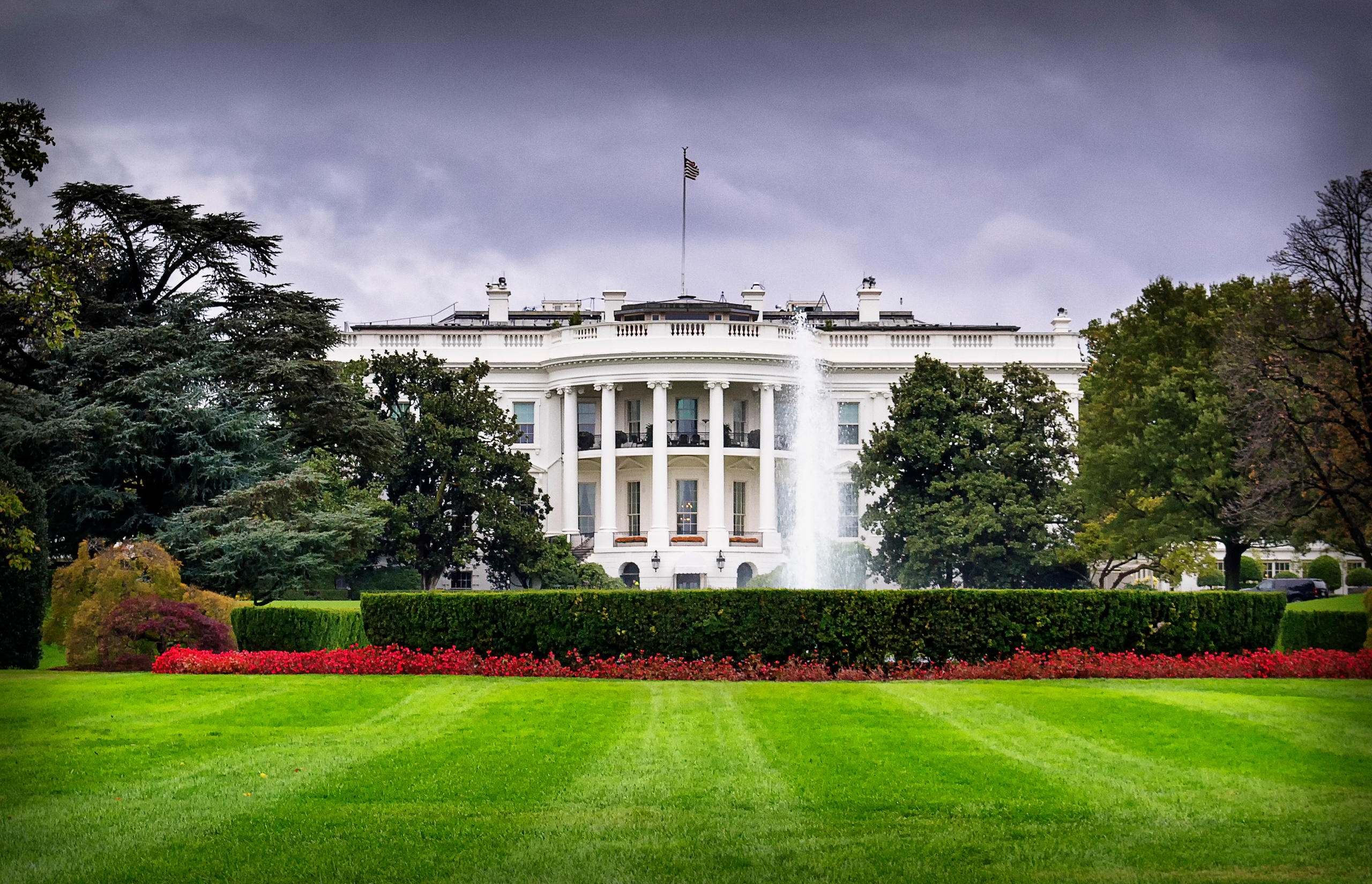Swiss blue chips: US staff favour Republicans

American employees of Swiss blue-chip businesses are betting the majority of their money on the prospect of a Donald Trump presidency and Republican business policies.
Among the 20 major corporations that make up the blue-chip Swiss Market Index (SMI), US-based employees who are citizens or permanent residents have donated $6.1 million (CHF5.9 million) so far during the 2016 US federal election cycle – with 55% of the donations favouring Republicans.
The picture is similar to 2012 when three-fifths of the $8.5 million donated by SMI-affiliated employees went to Republican candidates, according to a swissinfo.ch analysis of data from the Washington-based Center for Responsive PoliticsExternal link.
In 2008, there were $9.7 million in such donations split nearly equally among the parties.
The data reflects contributions of $200 or more by political action committees (PACs), individuals and soft money donors reported to the Federal Election CommissionExternal link. The money is spread among 25 candidates for president, 2,049 for the House of Representatives, and 433 for the Senate.
Intriguing split
Most of the SMI-related money comes from financial companies UBS, Zurich and Credit Suisse, along with the two biggest Swiss drug companies, Novartis and Roche, and agribusiness giant Syngenta. A closer look at the campaign finance data, however, reveals an intriguing split among some of the American employees of these Swiss multinationals.
Employees of the financial companies UBS, Zurich and Credit Suisse apparently favour the billionaire real-estate mogul and other Republicans, while those at Novartis, Roche and Nestlé seem inclined toward Democratic politician Hillary Rodham Clinton and other Democrats.
“They’re trying to influence campaigns or candidates where they’re doing business,” said Candice Nelson, a political science professor at American University whose research focuses on campaign finance and voter behaviour. “Money tends to flow to people who can influence the policy process.”
Billions of dollars are flowing through the federal campaigns, political parties and outside spending groups in this two-year election cycle leading up to the November ballots. The presidential candidates have raised more than $1 billionExternal link so far; among the 2,482 congressional candidates, the haul has surpassed $1.28 billion.
Though the more than $6 million in Swiss-related donations are “a drop in the bucket”, Nelson said, foreign money has more broadly become an indirect campaign issue because of questions about Trump’s investments and how much influence foreign donors may have had through the Clinton Foundation.
‘Skin in the game’
And while it’s fairly common for business leaders and employees to hedge their bets by giving across the political spectrum “so that they have skin in the game”, Nelson said, special interest groups and associations generally side with candidates that reflect their policy stances.
Swiss news media have reflected deep misgivings about Trump’s populist appeal, generally favouring the experience that Clinton would bring if she is elected the first female US president only six years after US voters approved the first black US commander-in-chief.
Because Trump’s fundraising is nontraditional – he promised to spend unlimited amounts of his own money – donations to his candidacy lag behind those of Clinton. As of late September, Trump had raised $160 million – a little more than one-third of Clinton’s haul of $435 million. But there’s long been handwringing over foreign interests’ ability to join with other groups that can buy influence in Washington through secret money and hired lobbyists.
Since 1966, US law has prohibited foreigners from giving directly or indirectly for reasons of “internal security”. The law forbids candidates from knowingly receiving donations from foreigners or foreign companies. Permanent residents can donate, and a foreign-owned US company or the US subsidiary of a multinational can create a PAC under certain conditions.
Who’s more business friendly?
Though Republicans promote policies generally touted as more business friendly, Trump’s much-publicised departure from the Republican Party establishment has complicated the landscape. On the business front, his candidacy also is controversial for backing protectionist tariffs and opposition to the US remaining in the Geneva-based World Trade OrganizationExternal link.
Trump has promised to “jump-start America” by lowering taxes and cutting down on regulations with the aim of spurring business growth, job creation and higher wages. He also appealed to the private sector and fiscal conservatives by promising a moratorium on all new federal regulations.
Clinton is also seen as business-friendly, however, and the securities and investment industry has poured millions into her campaign and outside groups that support it, far more than for Trump. She wants to increase lending to businesses, and has called for investing at least $275 billion in federally funded projects to shore up crumbling US highways, bridges, railways, airports and other infrastructure.
The party platforms of both the Republicans and Democrats call for reinstating a version of the 1933 Glass-Steagall depression-era law that separated commercial deposit-taking from investment banking activities like trading. It was effectively repealed in 1999, under President Bill Clinton, but since the global financial crisis of 2008-09 there has been increasing clamour for measures to rein in Wall Street.
Big pharma has generally tried to cosy up to Clinton, though she has never been considered its friend and her campaign proposes ways to lower drug costs by linking prices to the amounts spent on R&D. Trump, meanwhile, emphasises repealing Obamacare, boosting competition among health insurers, negotiating with drug makers to save money and giving consumers more access to imported drugs.
If you’re not American…
Martin Naville, CEO of the Swiss-American Chamber of CommerceExternal link in Zurich, emphasises that it’s not the banks or big pharma giving the money or deciding on the recipients – it’s their staff, who must be US citizens or permanent residents, donating as individuals or via PACs.
“If you’re not American, it’s illegal to give donations. You can lobby, you can employ lobbyists to inform and influence, but you cannot give money to candidates, period, if you’re a foreigner,” he said. “The majority of the money doesn’t go to the presidential candidates, but to the Senate and House candidates.”
Though US campaign finance laws do not restrict the large sums going to independent-expenditure only committees (super PACs) and other party and outside group spending, the system is far more transparent than some of Switzerland’s biggest European trading partners.
“There’s no prohibition against foreigners giving money or companies giving money,” Naville said of the prospect of Swiss-linked donations to some European candidates. “There’s laws against corruption, and parties and candidates have to declare what they receive and how it’s spent, but they don’t have to declare where it’s from.”
Switzerland’s biggest trading partners are Germany and the US, followed by Italy, France, China, Britain, Austria, the Netherlands, Spain and Hong Kong. But the US market is becoming an ever-greater “locomotive” for Swiss exports, Naville said.
“The worry is that the good times will stop,” he said.
Swiss transparency
Amid the hoopla over big money flowing into US elections, there is at least the possibility of tracking significant portions owing to federal disclosure laws.
By contrast, Switzerland’s democracy has far less transparency. Europe’s leading human rights organisation has long criticised Switzerland for concealing private donations to political parties and election campaigns.
Switzerland and Sweden are the only members of the 47-nation Council of Europe that lack national disclosure laws about who is behind the financing of parties and elections.
In this video originally broadcast on FacebookExternal link, John Heilprin tells Susan Misicka about his inspiration and research for the story.

In compliance with the JTI standards
More: SWI swissinfo.ch certified by the Journalism Trust Initiative

















You can find an overview of ongoing debates with our journalists here . Please join us!
If you want to start a conversation about a topic raised in this article or want to report factual errors, email us at english@swissinfo.ch.